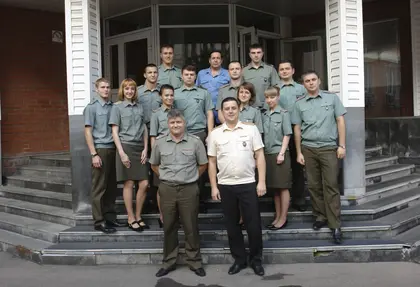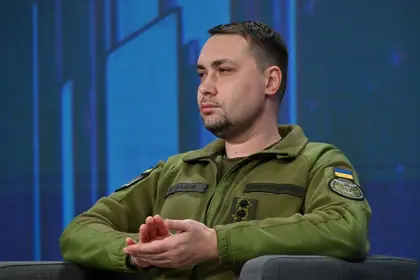A meticulously researched report by the independent web news groups lnsider and Bellingcat, and the German major media magazine Der Spiegel, identified by name 33 Russian Federation (RF) military service members responsible for planning potentially thousands of missile strikes on Ukrainian homes and businesses, and possibly committing war crimes in the process.
Investigators used personal telephone records of members belonging to an obscure RF army unit called the Main Computing Center (MCC) to conclude the group’s primary mission is planning and programming software for precision-guided missiles aimed at Ukraine. Among other tasks, the men and women of the MCC decide which munitions to use and determine weapon flight routes, according to the investigative article made public on Oct. 23.
A link to the article is here: https://www.bellingcat.com/
Bellingcat senior researcher Christo Grozev said via Twitter that the multinational investigative team worked four months, going through masses of telephone records and Russian army military school graduate archives to build a picture of the MCC’s structure and member responsibilities. Practically all are highly educated military engineers and active duty officers, with backgrounds in information technology, software construction, or in a few cases computer game development, the report said.
European rights protection groups said the report constituted hard evidence that should lead to war crimes prosecutions against specific individuals.

British Defence Intelligence Update Ukraine 27 January 2025
“The people who are responsible for programming the missiles (to target) playgrounds, apartment buildings and power stations have names and faces,” the International Society of Human Rights said in an Oct. 24 statement.
The MCC targeting cell reportedly works out of a Moscow office building adjacent to the headquarters of the Russian Army General Staff. Investigators identified the MCC’s commander as Colonel Igor Bagnyuk.
Telephone metadata reviewed by the investigators also showed the MCC is divided into sections, each responsible for planning the flight paths of one of the three major types of Russian guided missiles: Kaliber long-range cruise missiles, Iksander ballistic missiles, and Kh-series bomber-launched cruise missiles.
The journalists said peaks of communications between Bagnyuk and subordinates repeatedly took place one or two days before a major missile attack against Ukraine. The first pulse of phone calls predating a big strike came on March 13, when a Lviv-region training base was massively hit by at least 20 cruise missiles.
On Oct. 10 the Kremlin fired 75 to 80 missiles at targets across Ukraine, striking civilian homes, businesses and infrastructure. One of the bloodiest cruise missile attacks, fired by a Russian submarine, hit the central city Vinnytsia on Jul. 14, killing 20 and injuring dozens more.
Ukrainian President Volodymyr Zelensky called it a terror attack. Close to 2,000 missiles of all types have been fired by Russia at Ukrainian targets since the Kremlin’s Feb. 24 invasion, according to Armed Forces of Ukraine (AFU) estimates. If the article is accurate, most of those strikes were planned and programmed by one or more MCC members.
The Insider article described service at the MCC as an office job, sometimes with long hours. The group’s day-to-day work is determining how Russia’s long-range missiles can best hit designated targets, programming each missile’s flight profile, and producing thumb drives containing attack data for uploading into weapons.
Russian opposition media activist Roman Dobokhotov wrote: “For the people aiming the missiles the work has become so routine, they don’t attach much meaning to it.”
MCC member internet use records uncovered by researchers found Bagnyuk to be an enthusiastic coin collector with enough free time on Oct. 10, a day of heavy missile strikes on Ukraine, to search for new numismatic purchases.
The investigation’s authors wrote that they called most MCC members directly for comment. One agreed to communicate with investigators in exchange for anonymity and provided the research team confirmation of many of its findings and a group portrait photograph of the MCC team. Another confirmed he worked for the MCC but declined to offer further information.
A subsequent check of his web presence showed one MCC staffer, Captain Roman Kurochkin, changed the name of his personal Telegram channel to “X-101,” after speaking briefly with a Bellingcat journalist.
Most MCC members contacted by the investigative team, according to the report, lied about their military service, with others claiming to be a florist, a plumber, and a wrong number. One officer claiming to be a civilian maintained denials of membership in the military, even after a reporter sent him a picture of him dressed in a Russian Army uniform, standing and smiling next to other members of the MCC.
Ukrainian reaction to the publication of the MCC members’ identities called for prosecution and even vengeance. The normally even-handed, neutral UNIAN news agency wrote: “The (article) makes public the names and faces of the criminals who at a distance, sitting in comfortable chairs, launch Russian cruise missiles to kill civilian Ukrainians in their homes. These scum are employees of a secret unit…They are remote killers, one of the key – and still anonymous – actors allowing Putin to wage an aggressive war.”
You can also highlight the text and press Ctrl + Enter










